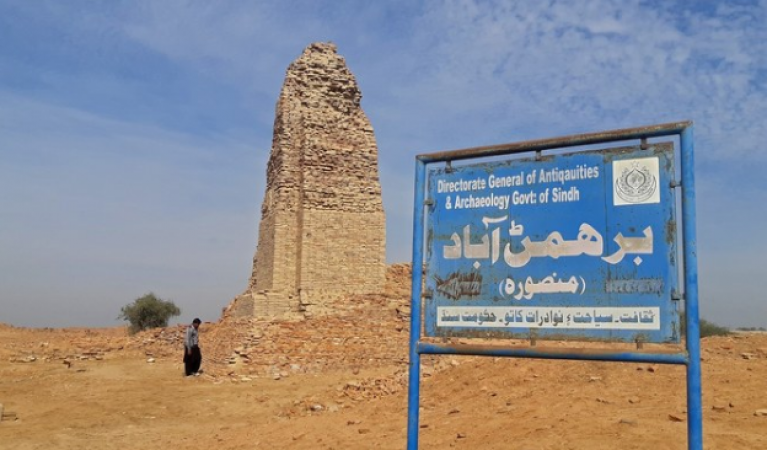
Mansurah: Residents of the ancient city of Mansurah, also known as Brahmanabad, claim that the town that had once produced dynasties can no longer even provide them with the necessities of life. Mansurah was once the capital of Arab rulers.
Mansurah, which was the historical capital of the caliphal province of Sindh and a thriving commercial centre during the eighth century under the Umayyad Caliphate and then the Abbasid Caliphate from the year 750 A.D. to 1006 A.D., is now home to just a little over 100 families. Earlier than that, in the middle of the seventh century, the city was governed by the Buddhist Lohana tribe.
Under the new Umayyad rulers, the city on the Indus River's bank, about 200 kilometres north of modern-day Karachi, developed into a significant port for cargo and passenger ships coming from the Arabian Sea.
Later, however, the river that had once used sea lanes to connect Mansurah to the major economic hubs in the area changed its course and now flows about 50 kilometres away from the town.
Also Read: UN: A shipwreck off the coast of Libya claimed at least 55 migrant lives
Arab News was informed by renowned archaeologist Prof. Altaf Aseem that the Arabs had conquered Brahmanabad and given it the name Al-Mansurah.
Aseem stated that the city already had a large fort with more than 1,400 bastions surrounding it before Muslim forces arrived. He continued by saying that Arab rulers used "decent town planning" to rebuild the city into a prosperous one whose riches exceeded those of Multan, which was at the time one of the most prosperous trade centres in the region.
John Bellasis made the first discovery of the old city's ruins in the 1850s, according to Piaro Khan, who oversees archaeological sites in the region. Between 1966 and 1998, the government commissioned a number of excavation projects following Pakistan's 1947 separation from British India. The most recent one was conducted by the Sindh provincial government about three years ago, and several artefacts, including pots and coins, were found.
Archaeologists claim that the archaeological evidence verified the multireligious and pluralistic nature of the society that existed under Arab rule.
The secretariat of the city, now known as Dar-Ul-Umara, was where we discovered the four door knockers, according to Mohammed Shah Bukhari, project coordinator at the Department of Antiquities and Archaeology.
Also Read: Israeli woman principal in court in Australia for sex offences
"They are inscribed in very fine and exquisite kufic script, which is carved, on them. It meets the standards of the inscriptions that were discovered in Baghdad, Syria, and North Africa at that time.
According to Bukhari, the door knockers' Arabic writing was accompanied by an image of a Hindu deity, reflecting the religious harmony that existed in the region when it was under Arab rule. He also noted that archaeologists had also discovered Buddhist artefacts and other non-Islamic objects among the ruins.
The first translation of the Holy Qur'an into the Sindhi language was also finished in Mansurah, according to archaeologist Aseem, which indicates that the people were permitted to continue their ritual practises (under the Arabs).
After the Arabs, the city was ruled by Sindh's Sumrah dynasty until 1011, when Mahmud of Ghazni destroyed it as retaliation for the locals' refusal to assist him in his illustrious military campaign against Somnath in 1025.
According to Bellasis, who was quoted by Aseem, there were dead bodies "in every street of Mansurah" after the attack. Burnt layers were found during the excavation process, which led archaeologists to believe Mahmud set the city on fire.
Mansurah, which was on the verge of being destroyed, later became a victim of nature when the Indus River meandered past the town. The river served as a vital communication channel in addition to being the only source of food and water for the locals and aiding in agriculture.
It served as the primary conduit for trade and commerce, according to Aseem.Residents of Mansurah today claim that the city lacks the essential infrastructure.
According to Jamal Din Sehto, a retired teacher at the settlement, "There were two schools here that are no longer operational since there are no teachers." "Water and electricity are not available here. Nothing is present.
Also Read: In a message to North Korea, the US is planning a rare nuclear missile submarine visit
Bukhari argued that Arab nations should support Mansurah's excavation and participate in research and preservation because it once distinguished itself as a major hub of trade and cultural activity.He advised the Arabs to pay attention and regard it as their own culture.